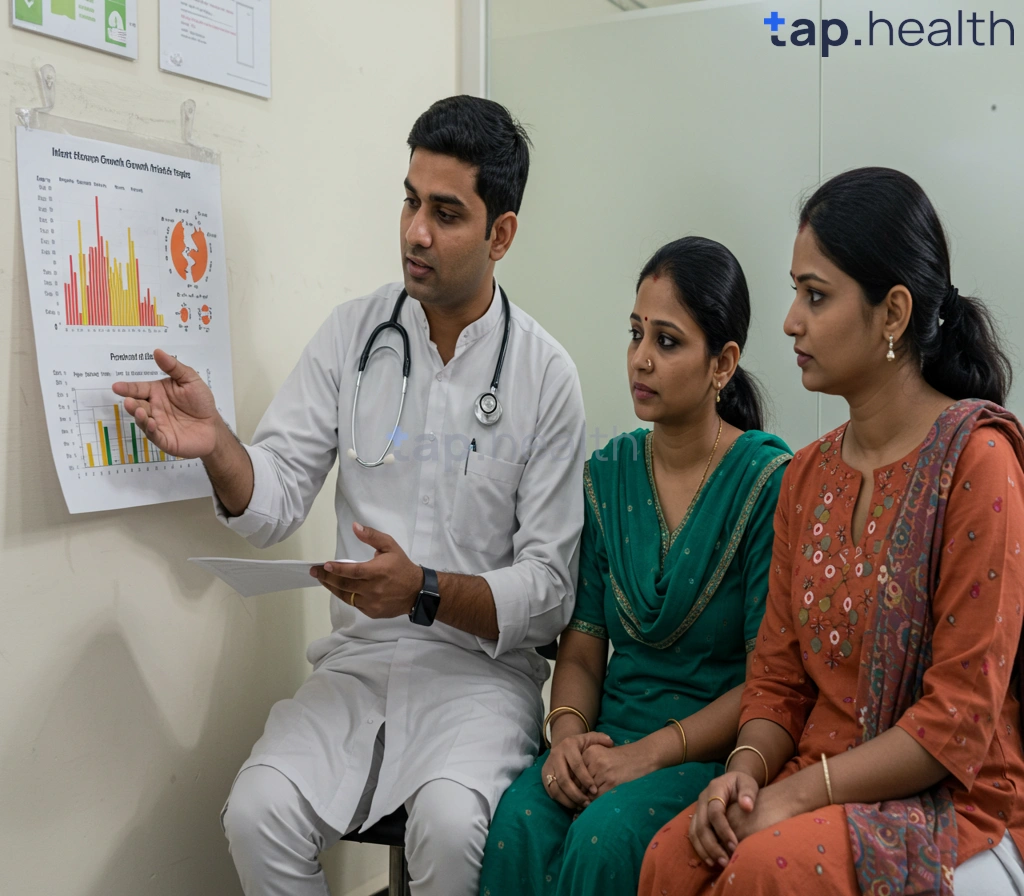Table of Contents
- Diabetes & Heart Disease: Unveiling Shared Risk Factors
- Diabetes, Cancer, and Heart Disease: A Shared Risk Profile?
- Understanding the Links Between Diabetes, Cancer, and Cardiovascular Disease
- Reduce Your Risk: Diabetes, Heart Disease, and Cancer Prevention Guide
- Diabetes and Cancer: Common Risk Factors and Management Strategies
- Frequently Asked Questions
- References
Living with diabetes often brings a wave of concerns, and rightfully so. It’s a serious condition that impacts many aspects of health. But did you know that diabetes significantly increases your risk of developing other serious illnesses? This blog post tackles a crucial aspect of diabetes management: Diabetes: Unveiling Shared Risk Factors for Heart Disease and Cancer. We’ll explore the often-overlooked connections between diabetes and these life-threatening conditions, shedding light on the shared risk factors that contribute to their development. Understanding these links is vital for proactive prevention and improved overall health outcomes. Let’s delve into the critical information you need to know.
Diabetes & Heart Disease: Unveiling Shared Risk Factors
Diabetes significantly increases the risk of heart disease, a leading cause of mortality globally, especially in Indian and tropical countries. This heightened vulnerability stems from a complex interplay of shared risk factors. For example, high blood sugar, a hallmark of diabetes, damages blood vessels over time, leading to atherosclerosis – the buildup of plaque in arteries. This process restricts blood flow, increasing the risk of heart attacks and strokes. Furthermore, hypertension (high blood pressure) and dyslipidemia (abnormal cholesterol levels), often co-occurring with diabetes, further exacerbate cardiovascular risk. The combination of these factors creates a dangerous synergy.
Lifestyle Factors and Regional Considerations
Lifestyle choices play a crucial role in amplifying these risks. Smoking, prevalent in many regions of India and Southeast Asia, dramatically increases the risk of cardiovascular complications in individuals with diabetes. Research shows smokers with diabetes face a two-fold higher mortality rate due to cardiovascular issues. Poor diet, including high consumption of saturated and trans fats common in some traditional diets, coupled with physical inactivity, further contributes to the problem. These factors, combined with the high prevalence of diabetes in many tropical countries, create a significant public health challenge. The relationship between diet and diabetes is further explored in Understanding the Link Between Diabetes and Obesity.
Taking Control: Actionable Steps for South Asian Populations
Managing diabetes effectively is paramount in mitigating heart disease risk. This includes regular monitoring of blood sugar levels, adhering to prescribed medications, and adopting a heart-healthy lifestyle. Prioritizing a balanced diet rich in fruits, vegetables, and whole grains, while minimizing processed foods, saturated fats, and added sugars, is crucial. Regular exercise, even moderate amounts of daily physical activity, is vital. For individuals in South Asian countries, culturally appropriate dietary modifications and accessible exercise programs are essential for effective management. Seeking guidance from healthcare professionals specializing in diabetes management is highly recommended. Early detection and proactive management are key to reducing the devastating impact of these interconnected health challenges. As we age, managing diabetes becomes even more crucial, as highlighted in Managing Diabetes as You Age: Challenges and Solutions.
Diabetes, Cancer, and Heart Disease: A Shared Risk Profile?
Diabetes significantly increases the risk of developing both heart disease and cancer, a concerning reality amplified in Indian and tropical countries where lifestyle-related diseases are prevalent. This shared risk profile necessitates a proactive and holistic approach to health management. Research highlights a particularly concerning statistic: women with diabetes face a 40% higher risk of heart disease compared to men with diabetes. This disparity underscores the need for gender-specific preventative strategies within these regions.
Understanding the Connection
The link between diabetes, heart disease, and cancer is multifaceted. High blood sugar levels characteristic of diabetes damage blood vessels over time, increasing the risk of cardiovascular complications such as heart attacks and strokes. Similarly, chronic inflammation—a common consequence of uncontrolled diabetes—is implicated in the development and progression of various cancers. In India and tropical countries, factors like dietary habits, physical inactivity, and genetic predispositions may exacerbate these risks. Consider the high prevalence of type 2 diabetes, often linked to unhealthy diets rich in refined carbohydrates and saturated fats, common in many parts of these regions. For more information on the connection between diabetes and another common complication, read our blog on The Link Between Diabetes and Fatty Liver.
Taking Control: Actionable Steps
Managing diabetes effectively is crucial to mitigating the risks of heart disease and cancer. This involves maintaining healthy blood sugar levels through a balanced diet, regular exercise, and adherence to prescribed medications. Prioritizing preventative screenings, including regular check-ups for cardiovascular health and cancer, is equally vital. Seeking expert advice from healthcare professionals tailored to the specific needs of individuals within Indian and tropical contexts is essential. A focus on culturally appropriate dietary modifications and lifestyle adjustments can significantly improve outcomes. You might also find it helpful to read our article, Does Diabetes Cause Cancer?, which explores this complex relationship in detail.
Empowering Communities
Given the heightened risks highlighted in research, creating awareness and promoting proactive health management within communities in Indian and tropical countries is paramount. Early detection and appropriate interventions are key to improving health outcomes and reducing the burden of these interconnected diseases. Let’s work together to empower individuals to take charge of their health and well-being.
Understanding the Links Between Diabetes, Cancer, and Cardiovascular Disease
Diabetes significantly elevates the risk of both heart disease and various cancers. This intricate relationship stems from shared underlying risk factors and the physiological consequences of persistently high blood sugar. For instance, chronic hyperglycemia damages blood vessels, increasing the likelihood of cardiovascular complications like heart attacks and strokes. This vascular damage also contributes to the development of certain cancers.
Inflammation: A Common Thread
Chronic inflammation plays a crucial role in the development of both cardiovascular disease and cancer. Diabetes itself is a pro-inflammatory state, fueling this dangerous cycle. High blood sugar levels promote oxidative stress, leading to cellular damage and inflammation throughout the body. This creates a fertile ground for the uncontrolled growth of cancerous cells and accelerates the progression of atherosclerosis, a key contributor to heart disease. The impact is particularly significant in tropical and Indian populations, where certain genetic predispositions and lifestyle factors may exacerbate these risks.
Practical Steps for Prevention
Managing blood sugar levels effectively is paramount. This involves maintaining a healthy diet, rich in fruits, vegetables, and whole grains, common and accessible across Indian and tropical regions. Regular physical activity, even moderate exercise, is vital. Moreover, quitting smoking and limiting alcohol consumption are crucial steps. Early detection is key, so regular check-ups with your doctor, including blood sugar monitoring and cardiovascular screenings, are essential. Remember, nearly 30% of people with diabetes develop diabetic nephropathy, highlighting the importance of proactive healthcare. Taking control of your diabetes can significantly reduce your risk of both heart disease and cancer. To understand more about protecting your heart, read our article on Protect Your Heart from Diabetes: 5 Essential Steps. Consult your physician to develop a personalized management plan tailored to your specific needs and risk factors. Understanding how diabetes affects your blood flow is also crucial; learn more in our article, How Does Diabetes Affect Blood Flow?.
Reduce Your Risk: Diabetes, Heart Disease, and Cancer Prevention Guide
Did you know that up to 80% of Type 2 diabetes cases can be delayed or prevented through simple lifestyle changes? This is particularly relevant in Indian and tropical countries where diabetes, heart disease, and cancer are increasingly prevalent. These three conditions often share underlying risk factors, making a holistic approach to prevention crucial.
Understanding the Shared Risks
Obesity, physical inactivity, unhealthy diets high in processed foods and low in fruits and vegetables, and chronic stress are major contributors to all three. In many tropical regions, access to nutritious food can be limited, further exacerbating these risks. This highlights the critical need for community-based initiatives promoting healthy eating habits and regular exercise. For example, incorporating traditional, nutrient-rich local foods into daily meals can significantly reduce the risk.
Practical Steps for Prevention
Prioritizing your health is key. Start by incorporating regular physical activity into your daily routine, aiming for at least 150 minutes of moderate-intensity exercise per week. Focus on a balanced diet rich in whole grains, lean proteins, and plenty of fruits and vegetables. Managing stress through techniques like yoga or meditation is also crucial. Regular check-ups with your doctor, including blood sugar and cholesterol monitoring, are vital for early detection and management. For more information on managing diabetes effectively, check out this helpful guide: 10 Proven Tips to Effectively Manage Diabetes | Simple Guide.
Taking Action in Your Community
In India and other tropical countries, community-based programs focusing on diabetes prevention through lifestyle modifications can make a significant difference. Encourage your family and friends to adopt healthier habits. Seek out local resources and support groups that promote healthy living and offer guidance on managing these conditions. Remember, proactive steps taken today can significantly reduce your risk of developing diabetes, heart disease, and cancer in the future. Your health is an investment in a longer, healthier life. Learning how to prevent long-term complications is also vital; this article offers easy tips: How to Prevent Long-Term Complications of Diabetes: Easy Tips.
Diabetes and Cancer: Common Risk Factors and Management Strategies
Understanding the Shared Risks
Diabetes significantly increases the risk of developing several cancers, particularly in individuals aged 20-64 and 65+. A substantial portion of the global diabetic population, 61% of whom are aged between 20-64 years and 39% aged 65+ years, (source) face this heightened vulnerability. This overlap highlights the crucial need for integrated healthcare strategies across India and other tropical countries where diabetes prevalence is notably high. Shared risk factors like obesity, insulin resistance, chronic inflammation, and lifestyle choices (poor diet, lack of physical activity) contribute to both diseases. Early detection and proactive management are critical.
Lifestyle Modifications and Prevention
In regions like India and other tropical countries, adopting a healthy lifestyle becomes even more crucial. Dietary changes focusing on fresh fruits, vegetables, and whole grains, alongside regular physical activity, are essential. Managing weight is paramount as obesity is a significant risk factor. Regular check-ups, including blood glucose monitoring and cancer screenings (as recommended by a healthcare provider), are also crucial. These preventive measures are especially vital for individuals aged 20-64, representing a substantial portion of the diabetic population, as highlighted by the global data. For more effective strategies, check out our guide on 10 Proven Tips for Effective Diabetes Management.
Seeking Expert Advice
For individuals with diabetes in India and other tropical countries, it’s crucial to consult with healthcare professionals for personalized advice. This includes discussing family history, lifestyle modifications, and appropriate screening strategies. Early intervention and comprehensive management are key to mitigating the risks of both diabetes-related complications and cancer. Remember, proactive steps can significantly improve health outcomes and quality of life. Avoiding 5 Common Mistakes People Make in Managing Diabetes can also greatly improve your overall health.
Frequently Asked Questions
Q1. What is the connection between diabetes, heart disease, and cancer?
Diabetes significantly raises the risk of heart disease and cancer, especially in regions like India and other tropical areas. This is because conditions like high blood sugar, high blood pressure, and unhealthy cholesterol levels—often associated with diabetes—also damage blood vessels and cause inflammation, leading to both heart disease and cancer.
Q2. How can I reduce my risk of heart disease and cancer if I have diabetes?
Effective diabetes management is key. This includes carefully monitoring your blood sugar, taking prescribed medications as directed, and adopting a heart-healthy lifestyle. This lifestyle should incorporate a balanced diet, regular exercise, and avoiding smoking.
Q3. What lifestyle changes are most important for someone with diabetes?
Prioritize a balanced diet low in processed foods and saturated fats. Regular physical activity is crucial. Even moderate exercise can make a big difference. Quitting smoking is also essential, as it significantly increases your risk.
Q4. Are there specific preventative measures I should take?
Regular check-ups and screenings are vital for early detection. Your doctor can recommend the right frequency and type of testing based on your individual risk factors. Early diagnosis allows for timely intervention and better management.
Q5. What role does cultural appropriateness play in managing diabetes and its related risks?
Culturally appropriate strategies are essential for effective diabetes management, especially in high-risk populations. This means considering local dietary preferences and cultural practices when developing and implementing diabetes management plans.
References
- A Practical Guide to Integrated Type 2 Diabetes Care: https://www.hse.ie/eng/services/list/2/primarycare/east-coast-diabetes-service/management-of-type-2-diabetes/diabetes-and-pregnancy/icgp-guide-to-integrated-type-2.pdf
- What is Diabetes: https://www.medschool.lsuhsc.edu/genetics/docs/DIABETES.pdf




